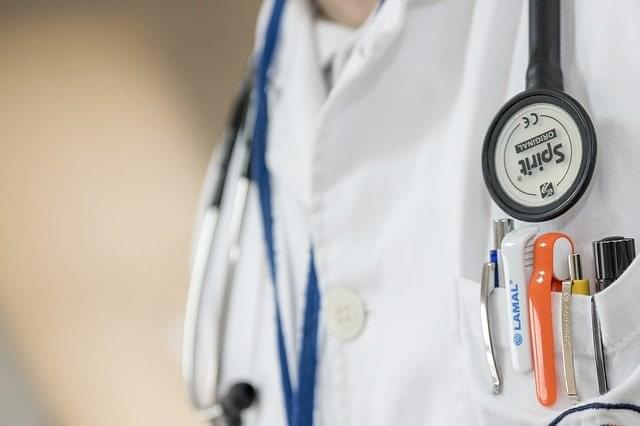
Let's look at some definitions and break them down in more detail:
CLEANING is that set of operations necessary to remove "visible dirt" from surfaces, objects, and environments: sweeping, dusting, degreasing, cleansing. Cleaning activities use cleaning/hygienizing products-the two terms are equivalent-that remove dirt by mechanical or physical action. Products marketed as sanitizers, lacking a specific authorization, do not possess disinfectant properties: they are simply cleaning products.
DISINFECTION is the activity that includes procedures and operations that go to lower the microbial load of an environment, surface, instrument, etc. Disinfection, to be effective, must always be preceded by thorough cleaning. For disinfection, specific products (biocides or medical-surgical aids) are used whose efficacy against different microorganisms, such as viruses, must be declared on the label. Disinfectant products are authorized for marketing based on scientific evidence (also evidence of efficacy).
When we talk about SANIFICATION, we mean the set of procedures and operations designed to make healthy certain environments by means of cleaning and disinfection activities and with the control and improvement of microclimate conditions with regard to temperature, humidity and ventilation and with regard to lighting and noise. In this phase of pandemic containment, the term sanitization is understood as the combination of cleaning + disinfection + control of aeraulic systems, where present.
Why DO WE TALK ABOUT CLEANING AND SANITIZATION IN PRODUCTIVE ACTIVITIES?
.
The recent provisions on the containment and management of the epidemiological emergency from COVID19, stipulate that sanitation operations should be encouraged. In businesses, commercial establishments, and services, the periodic sanitization of premises, workstations, other areas, and articles must be ensured.
In particular, in the Shared Protocol for Businesses, Annex 6 to the DPCM of 26/04/2020, Article 4 indicates the requirements for CLEANING AND SANITIZATION IN BUSINESS:
- the company shall ensure the daily cleaning and periodic sanitation of the premises, rooms, workstations, and common and recreational areas
- in case of the presence of a person with COVID-19 within the business premises, cleaning and sanitization of the aforementioned shall be carried out according to the provisions of Circular No. 5443 of February 22, 2020 of the Ministry of Health as well as their ventilation
- it is necessary to ensure the cleaning at the end of the shift and periodic sanitization of keyboards, touch screens, mice with appropriate cleaning agents, both in offices and production departments
- the company in compliance with the indications of the Ministry of Health in the manner deemed most appropriate, may organize special/periodic interventions of cleaning by resorting to social shock absorbers (also in derogation)
- In geographic areas with greater endemicity or in companies where suspected cases of COVID-19 have been recorded, in addition to normal cleaning activities, it is necessary to provide, upon reopening, an extraordinary sanitization of environments, workstations and common areas, pursuant to Circular 5443 of February 22, 2020
These recommendations, however, do not specify the frequency and manner in which cleaning, sanitization, extraordinary sanitization should be performed: detailed guidance is contained in a very long list of technical documents including WHO and ECDC Guidelines, ISS Reports, protocols attached to DPCM 11/05/2020, Regional Ordinances, INAIL technical documents and all their updates.
Each company must not only transpose, but contextualize, i.e., drop into its own reality, the regulatory requirements and technical-scientific recommendations by detailing the methods, frequency and responsibilities of cleaning and sanitization activities in the Company Protocol for reopening.
Such measures, in fact, because they are marked by overly specific and complexly interpreted regulations, risk making the resumption of production activities with respect to corporate compliance an obstacle course.
The entrepreneur finds himself in the difficult position of defining the procedures to make work environments healthy by identifying the correct sanitization practices from Covid-19 indicated by the competent bodies and which products should be used depending on the required procedure.
The risk to which the contractor is exposed?Non-compliance with sanitation regulations and related sanctions.
In order to support production activities that have to comply with these legal obligations and need to be able to rely on experienced figures and therefore able to fully comply with current regulations in the areas of environmental sanitation, AMBIMED provides the expertise of the COVID CONSULTANT, a coordinating figure who possesses specialized skills on the safety measures to be taken for the prevention of corona virus infection: a Prevention Biologist who, thanks to his in-depth knowledge of the set of standards, protocols, guidelines (regional, national, international) applicable to different work contexts, possesses all the tools to carry out a risk assessment and define anti-contagium prevention protocols tailored to each peculiar business reality, supporting the entrepreneur in drafting the complex procedures for sanitizing work environments.




